Lu Yu, in his Tea Classic, states that while the tea flower has a strong flavor, it lacks fragrance. All its aroma is condensed within the leaves.
Almost all flowering plants in the world have flowers that are more fragrant than their leaves, with the leaves being simple and the flowers colorful. The flowers are generally more valuable than the leaves. However, the tea plant is unique in that its leaves are more fragrant than its flowers, with the leaves being more valuable than the flowers. In the case of tea, the leaves are the main focus while the flowers play a supporting role. Although the flowers compete to be the most beautiful, the leaves remain proud among them.
Flowers are mostly beautiful on the outside, but the beauty of tea leaves lies within; flowers are often fragrant on the outside, but the aroma of tea leaves resides within. Tea grows between heaven and earth, absorbing its vitality and essence from both the heavens and the earth; it blossoms into the most beautiful green leaves and elevates an intoxicating inner fragrance.
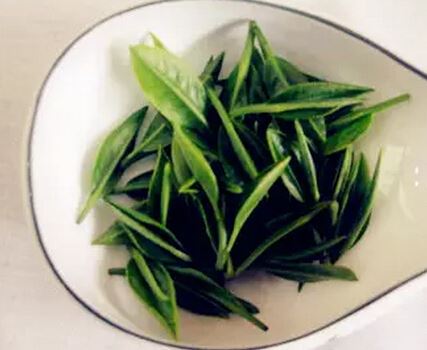
Sweetness tastes even sweeter after experiencing bitterness.
Only when tea is immersed in boiling water can its entire body stretch out, releasing its energy and value, and emitting the most intense fragrance of life.
Bitterness is the true flavor of tea, just as it is the true flavor of life. Good tea is always bitter first and then fragrant, and life is always a mix of joy and sorrow. Savor it slowly, and reflect on it gradually. Sometimes, the most bitter moments are when the sweetest fragrance is about to emerge, and the sweetest moments may hide a hint of bitterness…
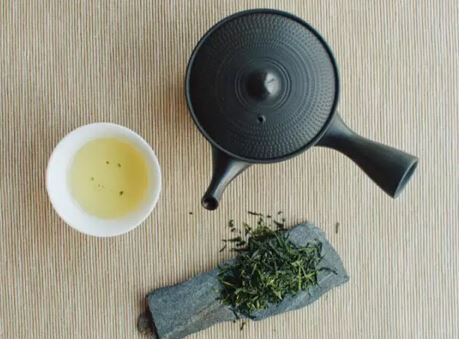
The most disappointing thing when Drinking Tea is to find bitterness instead of sweetness, to experience troubles instead of happiness, and to taste pain instead of joy. Drinking tea is most delightful when bitterness transforms into sweetness, when troubles turn into happiness, and when pain metamorphoses into joy…
Drinking tea daily allows one to savor the four seasons; a lifetime of drinking tea allows one to savor life. When tasting tea, we are not only tasting the tea itself but also nature and time… To appreciate the taste of tea and understand the way of tea, one must do so with elegance and with the heart.
Tasting tea is about tasting the heart, immersing life's bitterness in water and boiling it until it becomes a cup of faintly fragrant tea.
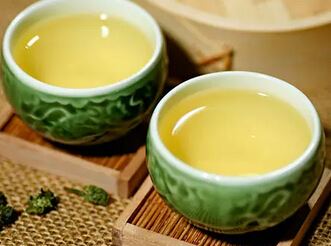
Fine tea cannot exist without fine water.
Tea is a very spiritual plant, and when combined with natural water, it becomes fragrant water, allowing people to savor the flavors of the four seasons. When it merges with the water of the soul, it becomes the water of the spirit, allowing people to fully appreciate the true essence of life.
The Ming Dynasty's Tea Manual states, “Water is the mother of tea.” No matter how good the tea, it cannot exist without water. Fine water brews fine tea, and fine tea requires fine water. Different types of water—such as spring water, river water, well water, lake water, rainwater, and snow water—produce different flavors when used to Brew tea. As the ancients said, eight parts of tea combined with ten parts of water will result in perfect tea; however, if eight parts of water are used to brew ten parts of tea, the resulting blend will only be eight parts good.
Water remains water without tea, albeit bland and tasteless. However, tea is not tea without water. The fragrance of a drop of water lies in the tea, and the fragrance of a leaf of tea lies in the water. Water is the soulmate of tea, and tea is the elevation of water. Tea blooms for water throughout its life, and water is fragrant due to tea, creating the most intoxicating relationship between tea and water.
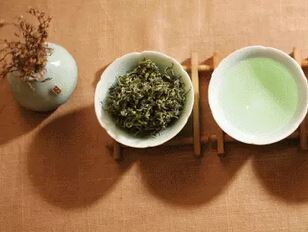
Every most intense fragrance of tea originates from millions of the most ordinary drops of sweat.
People often say that it takes 60,000 to 70,000 tea buds to produce one catty (approximately 500 grams) of Spring Tea shoots. It is hard to imagine that to obtain a hundred catties of tea, one must wear a hat, carry a bamboo basket, endure the scorching sun, bend over, and move through lush Green Tea gardens, carefully picking tender green tea buds by hand and placing them in the basket. This action must be repeated millions of times.
Fine teas are often grown in remote valleys and high mountains amidst clouds and mist, where they enjoy the full glory of the sun and moon and are nourished by wind, frost, rain, and dew. They are far from pollution and the noise of civilization, spending their lives amidst green mountains and clear waters. Since ancient times, there has been the saying that “fine mountains and waters produce fine teas” and “beautiful scenery yields fragrant tea.”
Fine teas have a clear and pure quality, untainted and flawless, as the saying goes, “the best teas are like beautiful women” (Su Dongpo). The tranquil beauty and warm fragrance of tea is its homeland, a place to cleanse the soul.
A life of quality is like tea. The quality of tea reflects the character of a person, and tasting tea is akin to assessing a person.
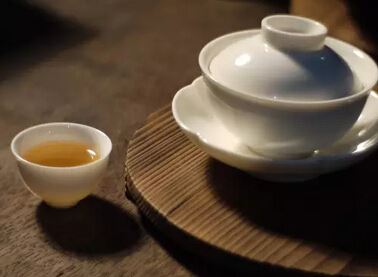
Can people separated from nature still capture these fragrant aromas?
The true flavor of tea lies hidden within the most delicious landscapes of nature, amidst mountains, waters, grasses, and trees. Only when people are embraced by nature, coexisting with grasses and trees, and integrating with the natural world, can the world's most intense tea fragrance be nurtured.
Each type of tea has its own unique flavor, and even teas from the same region will not taste exactly the same. Moreover, each person experiences a unique flavor when drinking tea, and each occasion of drinking offers a distinct taste. Even the finest tea may not suit everyone's palate, and even the most bitter tea can be savored for its fragrance by some.
The taste of tea varies depending on the time of day, location, season, weather, scenery, atmosphere, mood, company, level of cultivation, personality, age, and other factors…
Under the moon, before flowers, in the bamboo forest, in the rain, and during the snowy night, tea has a thousand flavors, and people have a thousand flavors. A single cup of tea, a single moment, can be understood and remembered forever, permeating life with fragrance.